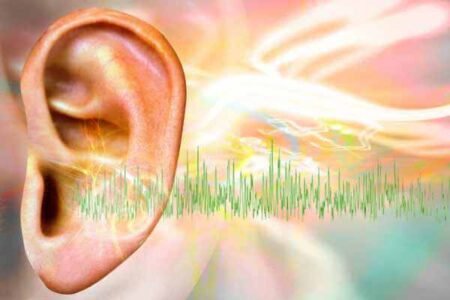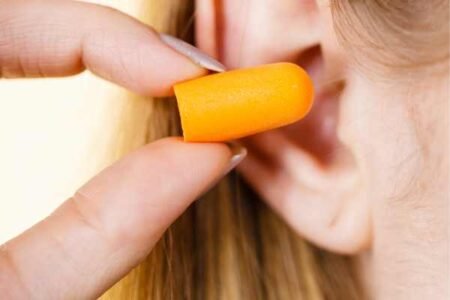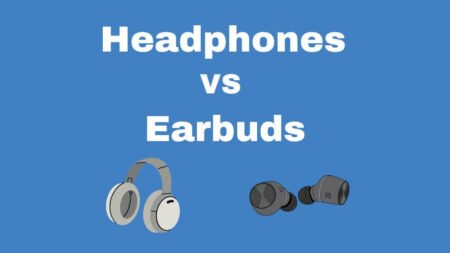Tinnitus is a condition that causes a ringing, buzzing, or hissing sound in the ears. It can be very annoying and affect your quality of life. Some people may wonder if earplugs can cause or worsen tinnitus, especially if they use them to block out noise or protect their hearing. In this article, we will explore the relationship between earplugs and tinnitus, and offer some tips on how to use earplugs safely and effectively.
What is tinnitus?
Tinnitus is not a disease, but a symptom of an underlying problem in the auditory system. It can be caused by various factors, such as:
- Exposure to loud noise
- Ear infections or wax buildup
- Aging or hearing loss
- Medications or drugs
- Stress or anxiety
- Head or neck injuries
- Certain medical conditions, such as Meniere’s disease, acoustic neuroma, or TMJ disorder
Tinnitus can be subjective or objective. Subjective tinnitus is the most common type, and it means that only you can hear the sound. Objective tinnitus is rare, and it means that the sound can be heard by others, such as a doctor. Objective tinnitus is usually caused by a physical problem, such as a blood vessel or muscle contraction.
Tinnitus can vary in severity, frequency, pitch, and duration. Some people may experience it occasionally or constantly, in one or both ears, as a low or high-pitched sound, and for a few seconds or indefinitely. Tinnitus can interfere with your sleep, concentration, mood, and overall well-being.
Do Earplugs Cause Tinnitus?
Earplugs are devices that are inserted into the ear canal to reduce the amount of sound that reaches the eardrum. They are commonly used for various purposes, such as:
- Protecting the hearing from loud noise, such as concerts, fireworks, machinery, or firearms
- Blocking out unwanted noise, such as snoring, traffic, or neighbors
- Enhancing sleep quality and relaxation
- Preventing water from entering the ear canal during swimming or bathing
- Preventing ear pain during air travel or altitude changes
Earplugs can be beneficial for people with tinnitus, as they can help prevent further damage to the hearing and reduce the perception of the tinnitus sound. However, earplugs can also have some drawbacks for people with tinnitus, depending on how they are used.
Earplugs do not directly cause tinnitus; instead, this depends on your usage. That said, earplugs have been shown to overstimulate our cerumen glands, resulting in a higher risk of blockages and infections that may lead to tinnitus. Cerumen, otherwise known as earwax, protects our ear canal. However, an excess build-up of this wax can block the channels they intend to look after.
Tinnitus can also result from damaged hair cells in the ear. For those who suffer from this type, earplugs appear to intensify the ringing, but that is not the case. Instead, the plugs remove the outside noise that may have been masking the tinnitus, making the ringing more apparent.
What are the best types of earplugs for tinnitus?
Not all earplugs are created equal. Some types of earplugs may be more suitable for people with tinnitus than others. Here are some factors to consider when choosing earplugs for tinnitus:
Material
Earplugs can be made from different materials, such as foam, silicone, wax, rubber, or plastic. Some materials may be more comfortable and effective than others. For example, wax or moldable silicone earplugs behave like putty as they seal the entrance without extending into the ear canal. On the other hand, the average expandable foam earplug is shoved deep into the ear to soften the sound, which may lead to issues.
Size
Earplugs should fit snugly but not too tightly in your ears. If they are too small, they may fall out easily or not block enough noise. If they are too large, they may cause pressure or pain in your ears. You may need to try different sizes and brands to find the best fit for you.
Shape
Earplugs can have different shapes, such as cylindrical, conical, flanged, or custom-made. Some shapes may conform better to your ear canal than others. For example, custom-made earplugs are designed to match your exact ear shape, which can provide better comfort and protection.
Noise reduction rating (NRR)
Earplugs have a rating that indicates how much noise they can reduce in decibels (dB). The higher the NRR, the more noise they can block. However, you should not rely solely on the NRR, as it may not reflect the actual performance of the earplugs in real-life situations. You should also consider the type and frequency of the noise you want to reduce, and how much you still want to hear.
High-fidelity
High-fidelity earplugs are designed to reduce noise without distorting the sound quality. They can filter out harmful noise while preserving the clarity and balance of the sound. They are ideal for musicians, concert-goers, and anyone who wants to enjoy sound without sacrificing their hearing. High-fidelity earplugs can also help people with tinnitus by masking the ringing with ambient noise.

How to use earplugs safely and effectively for tinnitus?
Using earplugs correctly and hygienically can help you prevent or manage tinnitus. Here are some tips on how to use earplugs safely and effectively for tinnitus:
Wear your earplugs correctly
Every type of earplug comes with unique instructions. You must check the packaging or research the product to guarantee you are not damaging your ear when using it. Remove the earplug immediately if you feel any pain or discomfort!
Clean your earplugs regularly
Dirty earplugs can harbor bacteria and fungi that can cause infections in your ears. You should clean your earplugs after each use with mild soap and water, and let them dry completely before storing them in a clean case. You should also replace your earplugs when they become worn out or damaged.
Clean your ears properly
Excessive or improper cleaning of your ears can also cause problems with your hearing and tinnitus. You should avoid using cotton swabs, bobby pins, or other objects to remove earwax from your ears, as they can push the wax deeper into the canal or damage the eardrum. Also avoid using candles, syringes, or other methods to flush out your ears, as they can cause burns, perforations, or infections. You should only clean the outer part of your ears with a soft cloth or tissue. If you have a problem with earwax buildup, you should consult your doctor or an audiologist for professional advice and treatment.
Use earplugs sparingly
Earplugs can be helpful for people with tinnitus, but they should not be used all the time or for long periods. Overusing earplugs can make your ears more sensitive to noise and increase your awareness of tinnitus. You should only use earplugs when necessary, such as when you are exposed to loud or bothersome noise, or when you need to relax or sleep. You should also take breaks from wearing earplugs and let your ears breathe and adjust to normal sounds.
Seek professional help
Earplugs are not a cure for tinnitus, but a tool to help you cope with it. If you have persistent or severe tinnitus that affects your daily life, you should seek professional help from a doctor or an audiologist. They can diagnose the cause of your tinnitus and offer various treatments and therapies that may help you reduce or manage it.
Can earplugs cause ringing in the ears?
Typically, earwax naturally flows out of the ears in small amounts. However, extended usage of earplugs can obstruct this process, potentially causing earwax to become tightly packed within the ear canal. One of the prevalent consequences of this impacted earwax is experiencing tinnitus, which is characterized by a persistent ringing sound in the ears.
Can wearing earplugs make tinnitus worse?
It’s crucial to employ hearing protection when necessary, as excessive use can result in diminished sound tolerance and a temporary increase in tinnitus symptoms. This is because the consistent use of earplugs can limit the range of sound that travels through the auditory pathway, from the ear to the central nervous system.
Is it bad to use earplugs every night?
Using earplugs during sleep is generally considered safe. However, in certain instances, sleeping with earplugs might not be advisable, as regular use can potentially result in minor issues over time, like the accumulation of earwax. Occasionally, external noises from the environment can interfere with your sleep quality.

Conclusion
Do Earplugs Cause Tinnitus? Earplugs can be a useful accessory for people with tinnitus, as they can protect their hearing from loud noise and mask their tinnitus sound with ambient noise. However, earplugs can also have some drawbacks for people with tinnitus, depending on how they are used and what type they are.
Earplugs do not directly cause tinnitus; instead, this depends on your usage. That said, earplugs have been shown to overstimulate our cerumen glands, resulting in a higher risk of blockages and infections that may lead to tinnitus. Tinnitus can also result from damaged hair cells in the ear. For those who suffer from this type, earplugs appear to intensify the ringing, but that is not the case. Instead, the plugs remove the outside noise that may have been masking the tinnitus, making the ringing more apparent.
To avoid these problems, you should choose the best types of earplugs for tinnitus, such as wax or moldable silicone earplugs, custom-made earplugs, or high-fidelity earplugs. You should also use them correctly and hygienically, clean your ears properly, use them sparingly, and seek professional help if needed.
By following these tips, you can enjoy the benefits of earplugs without compromising your hearing health and quality of life.
I hope this article helps you understand Do Earplugs Cause Tinnitus. If you need any further assistance, please let me know. 😊
Read also: Can Earplugs Cause Vertigo?



